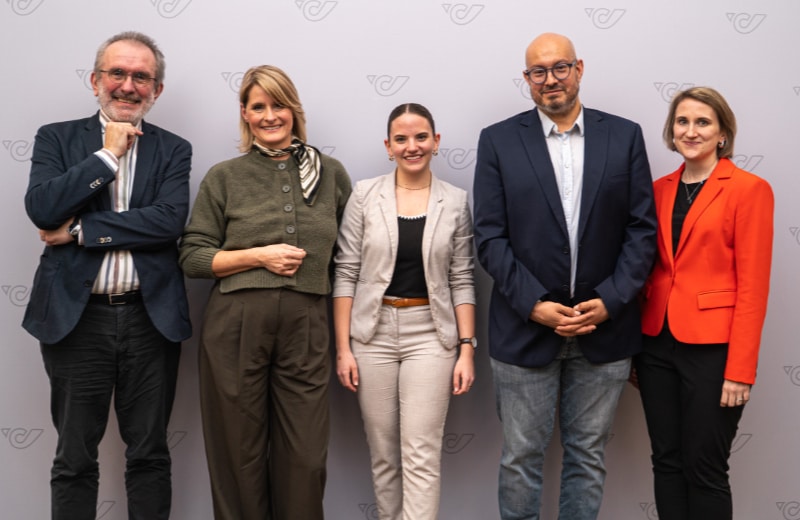Elon Musk’s OpenAI Lawsuit: Trial Set for March in High-Stakes Battle with Sam Altman
A federal judge has scheduled a March trial for Elon Musk’s lawsuit challenging Sam Altman’s plan to transform OpenAI’s business structure, pitting the two tech moguls against each other in a potentially precedent-setting legal showdown.
The Legal Battleground: OpenAI’s Restructuring Under Scrutiny
the legal conflict centers around Musk’s assertion that OpenAI has deviated from its original mission as a non-profit organization. The core of Musk’s argument, as outlined in his 2024 lawsuit, is that OpenAI’s restructuring plan is unlawful. Judge Gonzalez Rogers previously denied Musk’s request for a preliminary injunction to halt OpenAI’s transition to a “public benefit” for-profit model, but acknowledged the gravity of the claims and called for an expedited trial.
This trial date could significantly influence OpenAI’s strategic decisions regarding its shift to a for-profit model. It is also conceivable that the trial will commence after OpenAI has already completed this transition. The company is reportedly in discussions with authorities in Delaware and California concerning its restructuring plans, and the total amount of its most recent fundraising round is partially contingent upon the completion of its restructuring process by the end of 2025.
The stakes are high, not just for Musk and Altman, but for the future of AI growth and governance in the United States. The outcome could set a precedent for how AI companies balance innovation with ethical considerations and public benefit.
From Collaboration to Confrontation: The Musk-Altman Divide
The relationship between Musk and altman dates back to 2015 when they co-founded OpenAI. though, their partnership dissolved after OpenAI accepted billions of dollars in funding from Microsoft Corp.beginning in 2019—a year after Musk departed from OpenAI’s board. Musk now contends that this infusion of capital led OpenAI to abandon its original charitable purpose.
Musk’s viewpoint highlights a growing tension within the AI community: the conflict between open-source ideals and the need for considerable capital to develop advanced AI technologies. As AI models like GPT-4 require massive computational resources, the path to sustainability often involves lucrative partnerships and a shift toward commercialization.
Musk now claims that OpenAI retreated from its founding purpose as a charity when it accepted billions of dollars in backing from Microsoft Corp. starting in 2019, the year after he left OpenAI’s board.
Elon Musk, 2024 Lawsuit
Musk’s xAI and the Competitive Landscape
In 2023, Musk launched his own AI venture, xAI, further intensifying the competition.In late March, xAI completed its acquisition of the social media platform X (formerly Twitter), also controlled by Musk, creating a combined entity, XAI Holdings, valued at over $100 billion, according to Bloomberg News. This move positions xAI as a major player in the AI race, directly challenging OpenAI’s dominance.
This strategic decision could enable xAI to leverage X’s vast data resources for AI training purposes, providing a substantial competitive advantage.The integration of AI into social media platforms raises crucial questions about data privacy, algorithmic bias, and the potential for misuse.
OpenAI’s Defense: Undermining a Competitor?
OpenAI has vehemently denied Musk’s allegations, arguing that his lawsuit is a strategic maneuver to undermine a successful competitor after he “was unable to seize control” of OpenAI. This counter-argument underscores the intensely competitive nature of the AI industry, where control of key technologies and talent is fiercely contested.
The legal battle exposes the underlying rivalries and competing visions that shape the AI landscape. As AI becomes increasingly integrated into various sectors, the question of who controls this technology and how it is governed becomes paramount.
OpenAI has denied Musk’s legal claims and has argued that his real agenda in the court fight is to advance xAI. It has asked the judge to dismiss Musk’s suit as a bid to “undermine a successful competitor” after he was “unable to seize control” of OpenAI.
OpenAI Legal Filing
Funding Contingencies and the Future of OpenAI
The financial implications surrounding OpenAI’s restructuring are critically important. As reported by Bloomberg, SoftBank’s commitment to a $30 billion funding round is contingent upon OpenAI completing its restructuring by the end of 2025. Failure to meet this deadline could result in softbank reducing its investment to $20 billion, potentially forcing OpenAI to seek alternative investors.
This highlights the enormous capital demands of advanced AI development and the pressure on companies like OpenAI to secure funding and demonstrate a clear path to profitability. The outcome of the Musk lawsuit could further complicate OpenAI’s financial prospects, potentially impacting its ability to compete with other AI giants.
| Funding Scenario | Deadline | SoftBank investment | Potential Outcome |
|---|---|---|---|
| Restructuring completed | End of 2025 | $30 Billion | Full funding secured |
| Restructuring Not Completed | End of 2025 | $20 Billion | Reduced funding, search for alternative investors |
Implications for the AI industry and Beyond
The Musk v. Altman case has far-reaching implications. It raises fundamental questions about the responsibilities of AI developers, the balance between profit and public benefit, and the role of regulation in the rapidly evolving AI landscape.
For U.S. readers, this lawsuit underscores the need for a national conversation about AI ethics, governance, and the potential impact of AI on society. As AI becomes increasingly integrated into all aspects of American life, it is indeed crucial to ensure that its development and deployment are guided by principles of fairness, transparency, and accountability. This case serves as a reminder that legal and ethical frameworks must adapt to keep pace with technological advancements in the field of artificial intelligence.
What are the potential implications of OpenAI’s shift to a for-profit model on the future of AI development and governance?
Archyde Interviews: Legal Expert Dr. Anya Sharma on the Elon Musk vs. OpenAI Lawsuit
We sat down with Dr. Anya Sharma, a leading legal scholar specializing in AI ethics and intellectual property, to dissect the complexities of the ongoing lawsuit between Elon Musk and OpenAI’s Sam Altman.
The Core of the controversy: Unpacking the Legal Battle
archyde: Dr. Sharma, thank you for joining us. Can you give us a concise overview of the core legal issues at play in the Musk vs. Altman case?
Dr. Sharma: Certainly. The basic dispute centers around OpenAI’s shift from its original non-profit mission.Musk alleges a breach of the founding agreement. He argues that their restructuring to a “public benefit” for-profit model, and its subsequent acceptance of meaningful investment from Microsoft, violated the original purpose of the organization.
The Defining Point: The Non-profit to For-profit Conversion
Archyde: The shift to a for-profit model seems to be the crux. How does this impact the future of AI development?
dr. Sharma: That’s right. The conversion is pivotal. It brings questions of accountability.If OpenAI continues down the existing path it opens it up to greater pressures. The outcome of the trial, if OpenAI wins, will validate this approach as standard. The influence of the case expands into the domain of AI development and governance; it could shape how these organizations are created. How they pursue their mission, what their legal and ethical considerations will be is all at play.
Musk’s Perspective: A Clash of Ideals and Competition
Archyde: Musk, of course, has his own AI venture, xAI. Is this purely a legal dispute, or is ther a competitive element?
Dr. sharma: The competitive element is undeniable. The launch of xAI and the recent acquisition of X (formerly Twitter) by Musk solidify his position in the increasingly competitive AI landscape.OpenAI’s response, accusing Musk of trying to undermine a competitor, highlights the tension. Access to vast data, as X provides, is a significant competitive edge in AI training.
OpenAI’s Defense and the Future of Funding
Archyde: OpenAI argues this lawsuit is to undermine them and keep them from the ability to grow their business and product.What are the financial implications of the lawsuit and the restructuring?
Dr. Sharma: Funding is absolutely crucial. OpenAI’s restructuring process by the end of 2025 is also critical. SoftBank’s commitment to a $30 billion funding round is contingent upon this. If they fail to meet this deadline, the investment could drop to $20 billion. This could impact their trajectory in the competitive AI landscape.
The Broader Implications: AI Ethics and Governance
Archyde: Beyond the immediate legal ramifications, what broader implications does this case have for the AI industry and society?
Dr. Sharma: This case forces a vital conversation about AI ethics,governance,and the responsibilities of AI developers. As AI spreads throughout life, ensuring fairness, openness, and accountability is vital. It is also significant to ensure that legal and ethical frameworks keep up with technological advances in artificial intelligence.
Considering the Future of AI
Archyde: Dr.sharma, what is the single most critically important factor that readers should consider as this case unfolds?
Dr. Sharma: I think it’s the precedent it sets. This lawsuit will, directly or indirectly, shape how AI companies are formed and operate in the future. Will open-source principles be prioritized, or will the need for capital dominate? What do you, our readers, think is the ideal balance?








